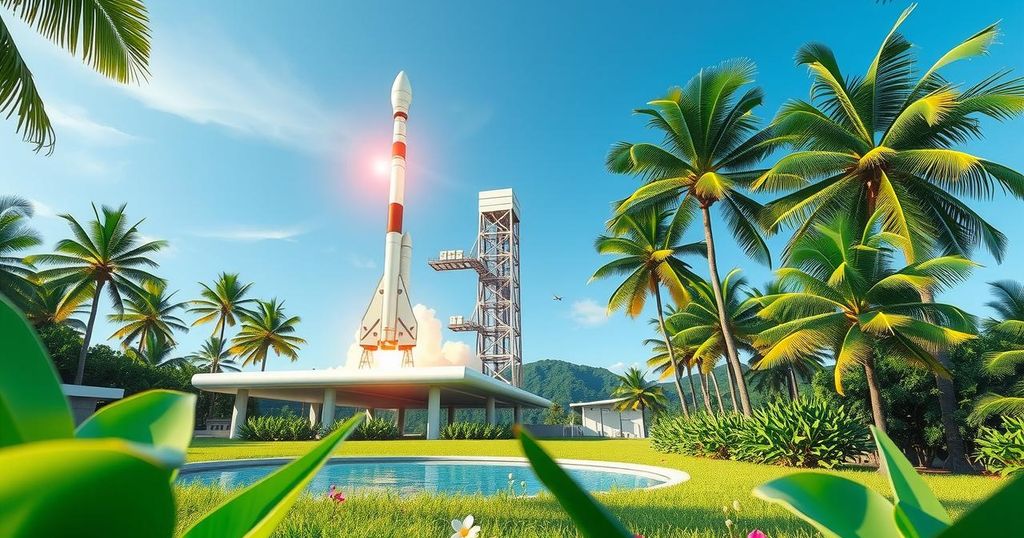Amazon Competes with SpaceX in Indonesia’s Satellite Internet Market

Amazon’s Project Kuiper is set to invest $20 million in Indonesia to compete with SpaceX’s Starlink for internet access, aiming for a total of $90 million by 2035. Meanwhile, SpaceX pursues partnerships in India and navigates regulatory challenges. Tesla faces federal scrutiny for attacks on its vehicles while advancing its robotaxi services in California.
Amazon’s Project Kuiper is poised to invest $20 million in Indonesia as a strategy to compete with SpaceX’s Starlink for rural internet connectivity. The initial funding will facilitate the establishment of six gateway stations, marking the start of Kuiper’s operations in the region. By 2035, Amazon plans to allocate a total of $90 million to bolster infrastructure and enhance internet access across various locales in the country.
Support for Amazon’s initiative comes from Indonesia’s Minister of Communication and Digital Applications, Meutya V. Hafid. She emphasized the importance of ensuring equitable digital access for all citizens, stating that public-private investment and innovation are vital for accelerating digital transformation in Indonesia.
Amazon has begun the necessary applications for operational permits within Indonesia, including telecommunications licenses and satellite leasing rights. The company is also in the process of obtaining a Business Identification Number (NIB) to comply with Indonesian regulations regarding foreign operations. Gonzalo de Dios, Global Head of Licensing and International Regulatory Affairs at Project Kuiper, expressed the company’s commitment to addressing connectivity challenges in remote areas.
Alongside its initiatives in Indonesia, Project Kuiper is also competing with SpaceX’s Starlink in the United Kingdom, where reports indicate Amazon is nearing a license to commence operations. SpaceX’s Starlink, for its part, launched services in Indonesia in the previous year, having the backing of notable figures, including a visit from Elon Musk to President Joko Widodo.
In India, SpaceX remains active as it explores partnerships with local telecom companies like Vodafone to enhance rural internet service. Vodafone’s negotiations with several satellite communication providers have stirred interest, despite SpaceX facing challenges in attaining regulatory approvals for Starlink services in the country.
Concurrently, in Las Vegas, the FBI has escalated its investigation into attacks on Tesla vehicles, classifying the incidents as federal crimes. Surveillance has captured violent acts against the vehicles, prompting authorities to stress the serious ramifications of such actions. Meanwhile, Tesla is advancing its robotaxi services with the recent acquisition of a key permit in California, facilitating their step toward launching autonomous ride-hailing services in the state.
In summary, Amazon’s Project Kuiper is actively participating in the competitive landscape of satellite internet services in Indonesia, with substantial investments aimed at enhancing connectivity. Meanwhile, SpaceX continues its ventures in both Indonesia and India, navigating regulatory hurdles while expanding partnerships. Additionally, the criminalization of attacks on Tesla vehicles highlights ongoing tensions surrounding the company, even as it moves forward with innovative service permits. Both companies and their projects reflect a dynamic shift in how digital connectivity is perceived and facilitated across varied landscapes.
Original Source: www.teslarati.com







